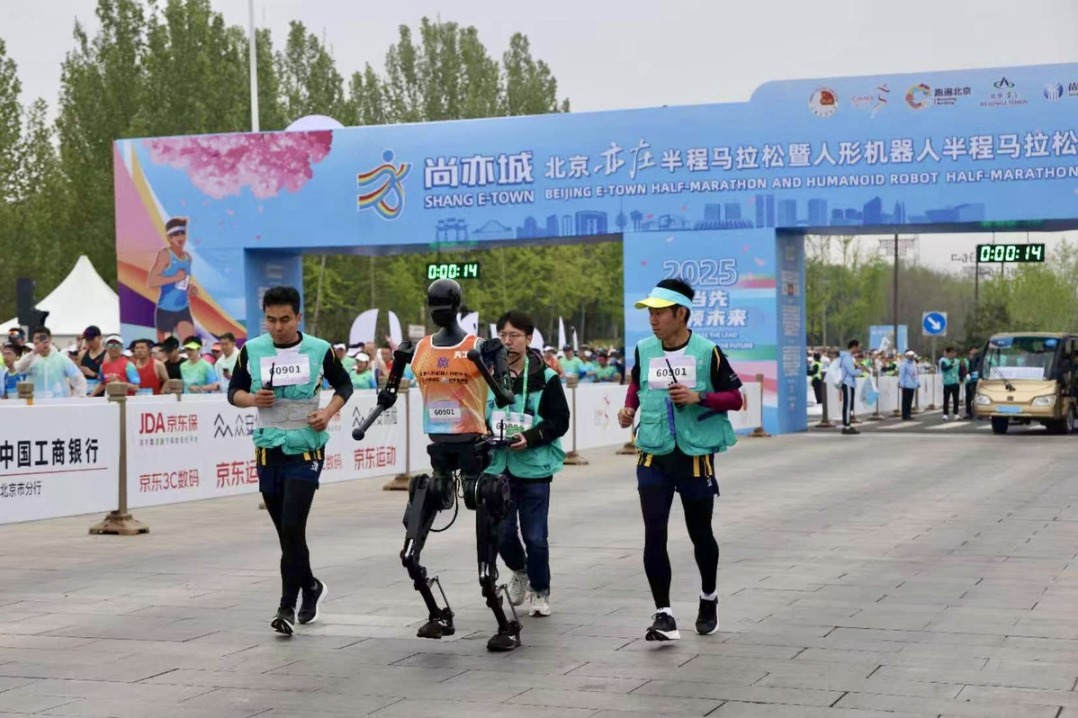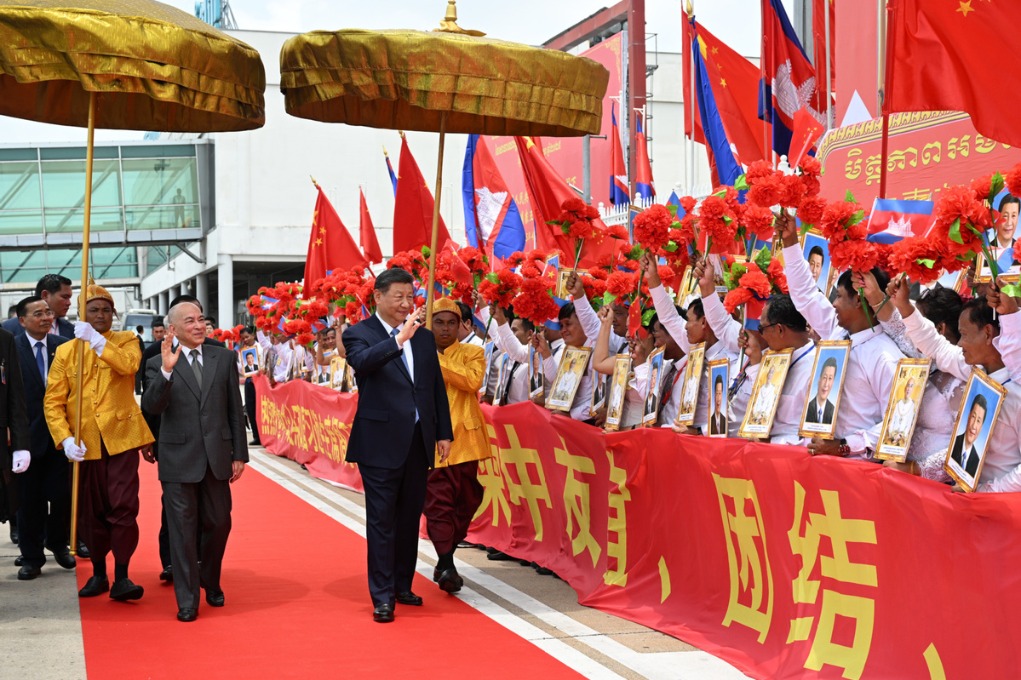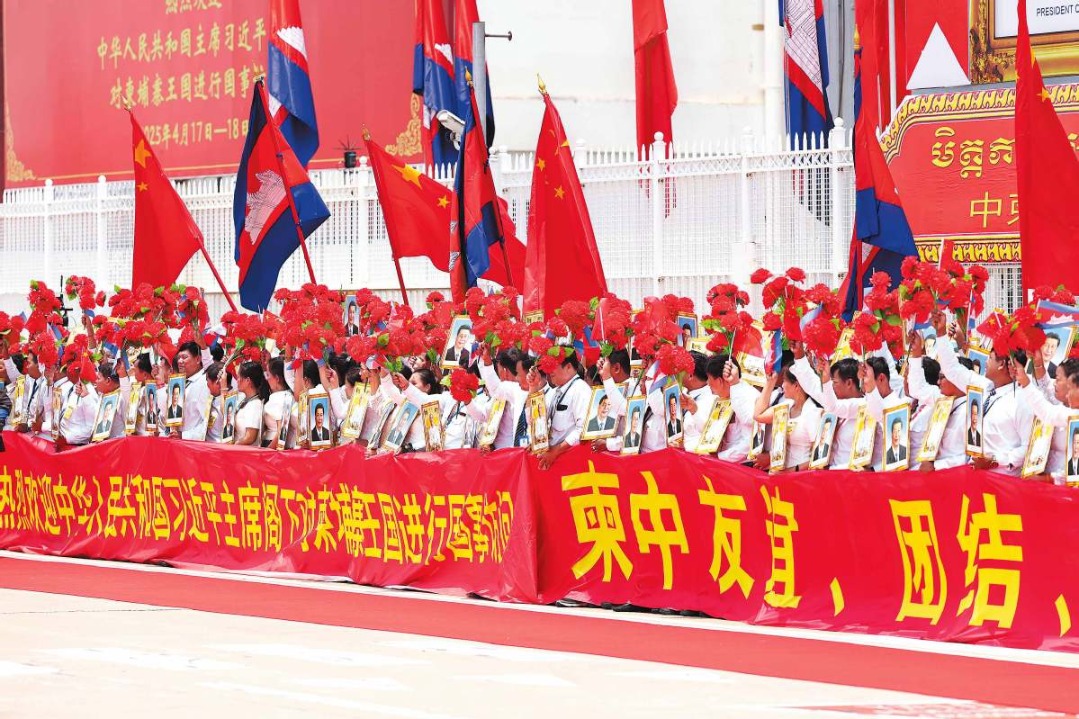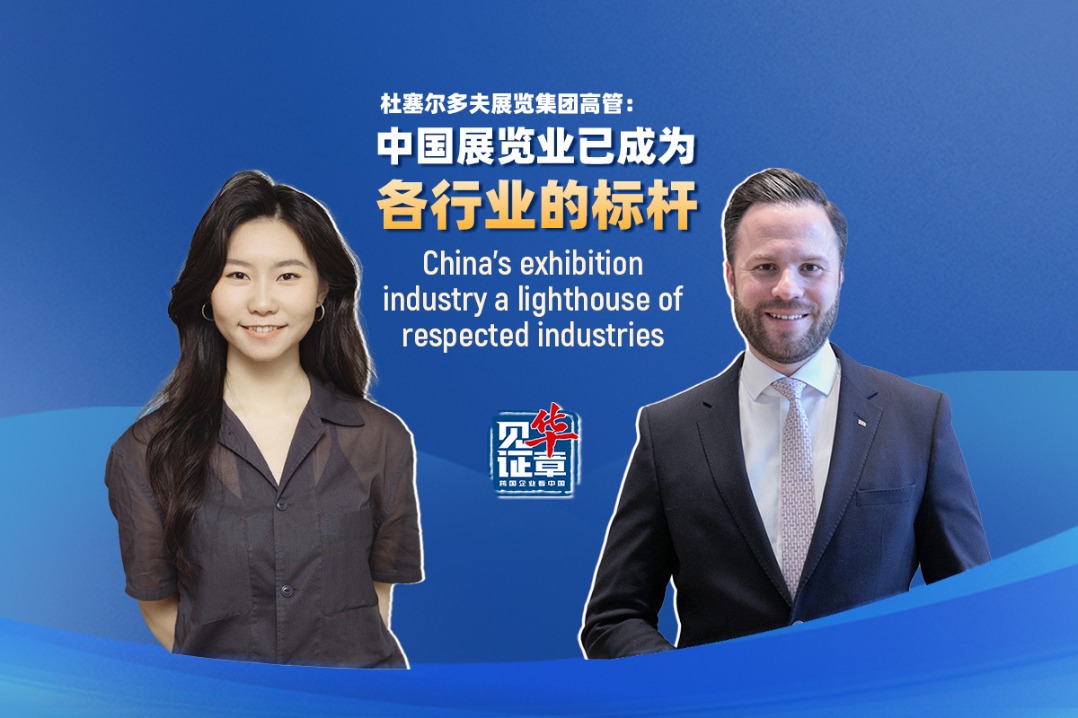China, Global South united by Bandung principles
By Klaus Heinrich Raditio | China Daily Global | Updated: 2025-04-18 09:13

During a news conference for the third session of the 14th National People's Congress on March 7, a journalist from Radio Republik Indonesia asked about China's perspective on the Global South. In response, Chinese Foreign Minister Wang Yi emphasized that China is a natural member of the Global South, having fought against colonialism and hegemonism together, and remains committed to global development. His remarks echoed the sentiments of then Indonesian president Sukarno from the Asian-African Conference in Bandung 70 years ago, which were also referenced by late premier Zhou Enlai on that occasion among other leaders.
China played a crucial role in the Bandung Conference held in 1955, which established a foundation for international relations known as the Ten Principles of Bandung. The principles articulate a collective aspiration mainly for peaceful coexistence and respect for the sovereignty of all nations; the rejection of colonialism, imperialism, interference, aggression, and any form of foreign domination; equality among races and nations; the promotion of mutual development and cooperation; and the peaceful dispute resolution in accordance with the United Nations Charter.
During a meeting with Sukarno on Sept 30, 1956, Chairman Mao Zedong stated that China's diplomatic priorities were focused on Asia, Africa and Latin America. Since then, China has kept its long-standing commitment to other developing countries, often referred to as the Third World. While addressing the United Nations General Assembly on April 10, 1974, late leader Deng Xiaoping stressed that the Chinese government and people firmly support all oppressed peoples and oppressed nations in their struggle to win or defend national independence, develop the national economy and oppose colonialism, imperialism and hegemonism.
As the world order evolved, developing countries acquired a new name — the Global South. In 2024, G. John Ikenberry of Princeton University defined the Global South as a group of countries that exist on the periphery of the world's political and economic landscape, outside the core of leading great powers. These countries share collective aspirations for development and desire a greater voice in global governance. Essentially, the Global South is a contemporary term for developing countries, with the Bandung Principles serving as its essence.
Although referred to by different terms such as "developing world", "Third World" and "Global South", the same group of nations has become a key force for maintaining peace, driving world development and improving global governance. Just as Wang put it, "the hallmark of our era is the prominent, growing strength of the Global South."
Notably, one of the concerns addressed at the Bandung Conference was the uncertain future of Palestinian independence. China's humanitarian assistance and diplomatic efforts in support of the Palestinian cause are commendable.
In 2024, China successfully facilitated a reconciliation between Hamas and Fatah in Beijing, paving the way for peace and stability in the region. This represents China's significant contribution to the realization of the Bandung Spirit, earning respect among countries in the Global South. It requires unity and greater strength of the Global South to bring about lasting peace in the Middle East in line with the two-state solution.
China in the 21st century is significantly different from its 20th-century self. China has experienced a remarkable rise and has become one of the world's major powers. China considers itself a natural member of the Global South, but its role is more complex. China's capabilities in many fields significantly surpass those of other Global South countries.
Nevertheless, to demonstrate its unwavering solidarity, China has been offering substantial assistance to countries in the Global South. For example, in Southeast Asia, China has created significant opportunities for regional growth. The Belt and Road Initiative has played a crucial role in funding 85 percent of large-scale infrastructure projects in Southeast Asia from 2015 to 2021.Undoubtedly, China has evolved into more than just a member of the Global South; it has become a partner, collaborator and facilitator of development.
At the news conference, the Chinese foreign minister's answer was clear: "No matter how the world changes, our heart will always be with the Global South. ... China will work with all Global South countries to add a new chapter to the annals of the history of the world."
Indeed, 70 years after the Bandung Conference, peace and development remain key tasks of the Global South. China has been keen on keeping development as a central international agenda. Last November, Chinese President Xi Jinping outlined eight actions China would take in support of global development, generating new energy for faster Global South development.
Hopefully, greater development will bestow the Global South with more strength to contribute to better global governance, for the common good of all humanity on this planet.
The author is a PhD in international relations and a lecturer in Chinese Politics at Driyarkara School of Philosophy's Graduate Program in Jakarta, Indonesia.
























